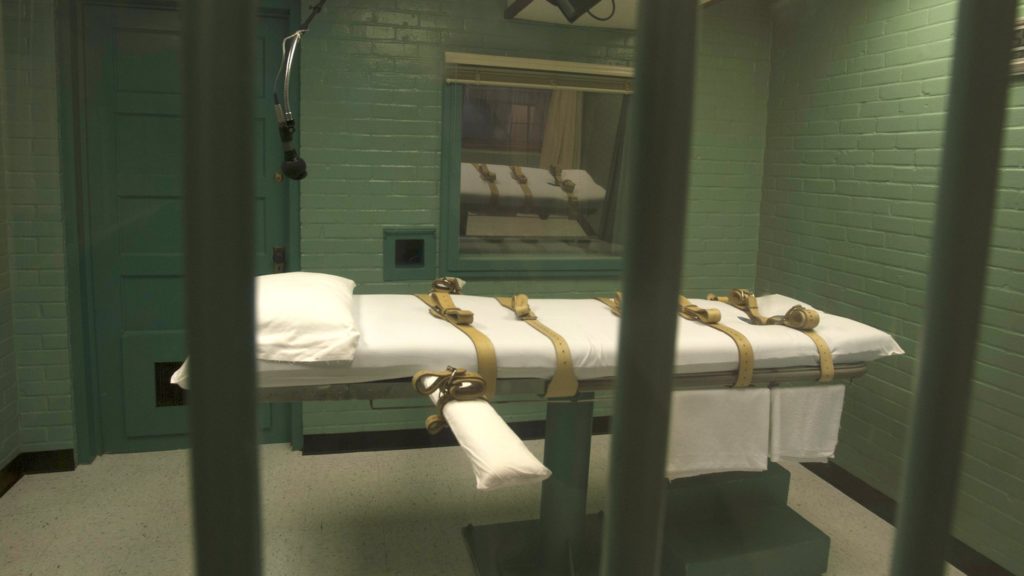Florida Gov. Ron DeSantis signed a bill April 20 that will eliminate the state's requirement that juries in capital punishment cases agree unanimously to recommend death sentences, lowering the number of jurors needed to hand down a death sentence to the lowest threshold of any U.S. state.
Florida's Catholic bishops criticized the legislation, SB 450, which reduces the number of jurors needed to recommend a death sentence from 12 to eight.
Of the 27 states that permit capital punishment, three do not require a unanimous jury to impose it. Alabama allows a 10-2 decision, while Missouri and Indiana allow a judge to decide when there is a divided jury, according to the National Center for State Courts. Florida's new law would leave it with the lowest threshold for the practice in the nation.
The legislation's proponents cite a divided jury in the case of Nikolas Cruz, which resulted in a life sentence without the possibility of parole, rather than capital punishment, for his 2018 mass shooting at Marjory Stoneman Douglas High School in Parkland, Florida.
In an April 20 statement on his approval of the legislation, DeSantis said, "Once a defendant in a capital case is found guilty by a unanimous jury, one juror should not be able to veto a capital sentence."
"I'm proud to sign legislation that will prevent families from having to endure what the Parkland families have and ensure proper justice will be served in the state of Florida," DeSantis said.
A press release from the governor's office also included statements from some of the parents of victims of the Parkland shooting.
"This bill is about victims' rights, plain and simple," Tony Montalto, father of Gina Rose Montalto, who died in the attack at age 14, said in a statement. "It allows the victims of heinous crimes a chance to get justice and have the perpetrators punished to the full extent of the law. Thank you to everyone who worked so hard on this bill."
The Florida Conference of Catholic Bishops has been critical of DeSantis' use of capital punishment and his effort to expand the practice. In an April 13 statement after the Florida Legislature passed the legislation, Michael Sheedy, FCCB executive director, called it "stunning" that Florida lawmakers "would weaken a common-sense law passed just six years ago that required unanimous agreement by a jury in order to sentence someone to death."
"The new legislation requiring only eight of 12 jurors to agree in order to impose a death sentence takes our state backwards to outlier status once again with the lowest standard for imposing a death sentence," he said. The capital punishment alternative of life without parole is a severe sentence "that keeps society safe," he added.
"As Florida persists in its implementation of the death penalty, the process should be as reliable and just as possible," Sheedy said. "Unanimity is required in every other circumstance when a jury is summoned in Florida. The harshest punishment that the state imposes should require the strictest standards."
Sheedy said the state's bishops are "deeply saddened for the victims of violent crime."
"We acknowledge the pain experienced by their families and pray they receive comfort and healing in their time of need," he said. "The death penalty neither restores life nor alleviates suffering but only perpetuates violence and vengeance."
FCCB, he said, will continue to "oppose state-sanctioned killing and remains hopeful that despite this setback Florida will soon join the growing number of states that have ended the use of the death penalty.”
In his 2020 encyclical "Fratelli Tutti," Pope Francis cited the writings of St. John Paul II, arguing that his predecessor "stated clearly and firmly that the death penalty is inadequate from a moral standpoint and no longer necessary from that of penal justice."
"There can be no stepping back from this position," Pope Francis wrote. "Today we state clearly that 'the death penalty is inadmissible' and the church is firmly committed to calling for its abolition worldwide."
In 2018, Pope Francis revised paragraph No. 2267 in the Catechism of the Catholic Church to reflect that position.
DeSantis, who is seen as a likely contender for the 2024 Republican presidential primary but has not declared his candidacy, is Catholic.
Krisanne Vaillancourt Murphy, executive director of the Catholic Mobilizing Network, said in an April 21 statement that her organization is "deeply disturbed that Governor DeSantis, a self-professed ‘pro-life' governor, has signed a law that makes Florida one of the most aggressive death penalty states in the country."
"This new law assigns Florida the ill-fated distinction as the state that can most easily send a person to death row. In no uncertain terms, DeSantis has sanctioned a thinly-veiled attack on human life," Vaillancourt Murphy said.
DeSantis' seeming presidential ambitions, Vaillancourt Murphy said, may be driving his action on capital punishment.
"It is revealing that Governor DeSantis is now suddenly pushing full-force to expand Florida's death penalty, just as he's expected to formally announce a presidential bid," Vaillancourt Murphy said. "It is not lost on us that people with political aspirations often use executions as a way to gain political support. The death penalty should not be used to score political points. Human beings should not be used as political pawns -- including human beings on death row."

